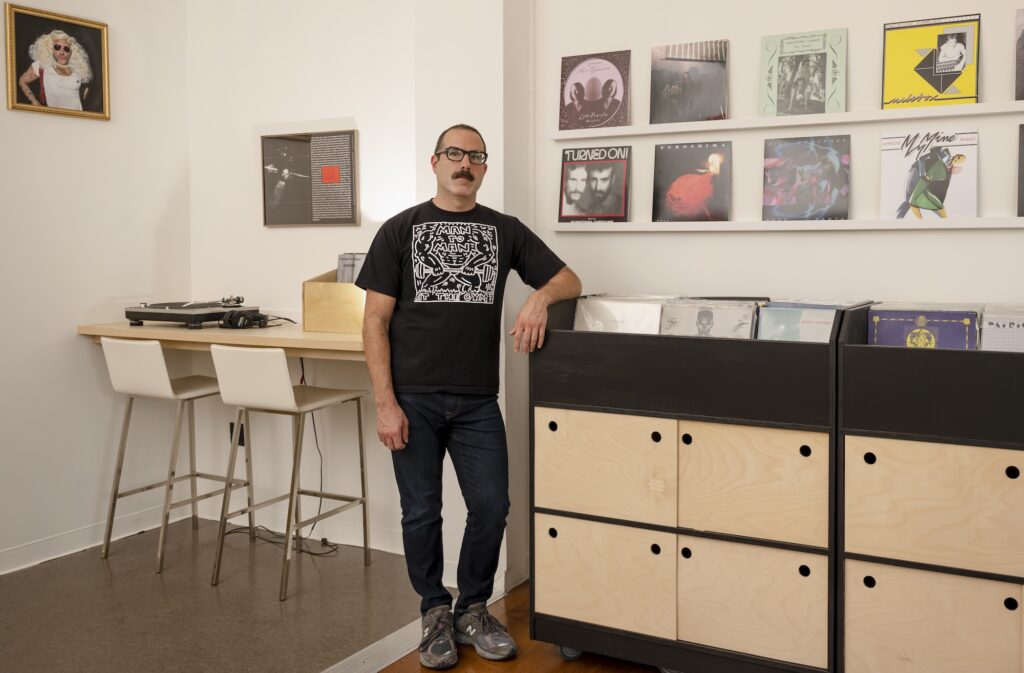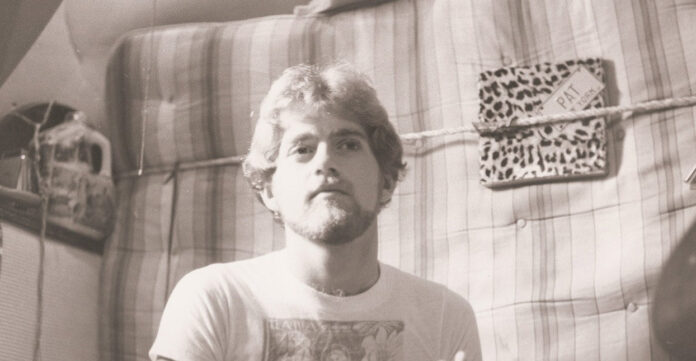The first time Josh Cheon stumbled across a Patrick Cowley record, his hookup was rolling a joint on it.
“I was living in New Jersey and I hooked up with DJ from Brooklyn,” he says. “And after we hooked up, he was like, let’s listen to this Patrick Cowley record. And I didn’t know who he was, and I was like, oh my gosh, this is amazing. This is like New Wave and disco and Italo and everything.”
Not long thereafter, Cheon moved to San Francisco, where he co-founded the Dark Entries Records label in 2009 (and later a record store) and took on the duty of shepherding Cowley’s vast archive of unreleased material. In celebration of what would have been Cowley’s 73rd birthday, Dark Entries is collaborating with the Tenderloin Museum to host a celebration of the late San Francisco producer, who remains one of the most legendary and innovative figures in the history of dance music.
For “Hi-NRG: Synths, Porn, Disco and the Life of Patrick Cowley” (Thu/19, 5:30pm-8pm, Tenderloin Museum, SF.) Cheon interviews Maurice Tani, a friend of Cowley’s from CCSF who later became one of the producer’s most trusted musical collaborators and recorded for his seminal San Francisco disco label Megatone Records.
The event will also feature a DJ set from Tenderloin local Steve Fabus, a contemporary of Cowley’s in the San Francisco disco scene of the ‘70s and ‘80s. “They actually shared a boyfriend for a minute,” says Cheon. “Or Patrick might have, like, stolen Steve’s boyfriend, I don’t know—I think they didn’t talk for a little while, because they were 25 or something and newly gay, experiencing this kind of love triangle thing and not sure about rules.”
Cowley is likely best-known today for his work with Sylvester, whose disco behemoth “You Make Me Feel (Mighty Real)” was a mid-tempo ballad before Cowley got his hands on it. (Dark Entries recently released Sylvester: Private Recordings 1970 from the diva’s early Cockettes days.) Cowley’s solo hits “Menergy” and “Megatron Man” celebrated the San Francisco gay club scene in which he was immersed; he seemingly spent most of his time either in bathhouses or the studio.
Cheon first began collecting Cowley’s music as a member of Honey Soundsystem, the local queer DJ collective. In 2007, he was approached by John Hedges, the last owner of Megatone Records, who was retiring to Palm Springs and had invited local DJs to sort through his record collection. Among the treasures within were Cowley’s unreleased collaborations with singer Jorge Socarras, in a much spikier and darker art-punk vein than the energetic music on which Cowley made his name. (These recordings were released as Catholic, first on CD by Germany’s Macro Records in 2009, then on vinyl by Dark Entries in 2014.)
The digging proceeded from there. Cheon interviewed everyone he could find who knew or worked with Cowley while picking up as many unreleased recordings as he could for his growing archive. Eventually, he stumbled across Cowley’s porn soundtracks, which comprise the bulk of Dark Entries’ archival Cowley releases. School Daze, the first of these soundtracks, came out in 2013. Removed from the images it was meant to accompany, Cowley’s music stands by itself as astral synth music.
“Patrick had a lot of this music laying around from college,” says Cheon. “He smoked a lot of weed, and he just would make kind of this stoner psychedelic electronic music.”
The cannabis haze is thick on Candida Cosmica, a goofy, giggly collaborative EP Cowley made with the filmmaker and feminist thinker Candida Royalle and released on Dark Entries in 2016. More professional is Afternooners, released in 2017, which is the only one of Cowley’s porn soundtracks released thus far that was actually commissioned as a porn soundtrack.
“He had already made a million dollars from ‘Mighty Real,’” says Cheon. “He was able to buy all the current gear. That’s why Afternooners does sound a lot more modern in a way. It kind of sounds like a Human League album, because it is similar equipment to what the big major label bands were using.”
Cowley rarely performed live due to the unpredictability and bulk of the gear he used, instead sending out the “Patrick Cowley Singers”—that’s them contributing delicious pseudo-gospel backing vocals to “Mind Warp”—to perform onstage while a backing track played.
1982’s Mind Warp is one of three full-lengths Cowley released in his lifetime, and it glistens with a dark, paranoid streak that contrasts with the boisterousness of Cowley’s earlier music. Its themes of disorientation and discontent likely had something to do with Cowley’s health, which was declining precipitously at the time he made this music. Just a month after its release, Cowley died at age 32, an early victim of AIDS before it even had that name yet.

Though Cowley never lived to see how the sound he pioneered would echo through gay clubs through the generations, a picture of Cowley emerges from the recordings and writings he left behind and the recollections of his family, friends, and lovers.
“He was a workaholic, and he didn’t ever stop,” says Cheon. “He was always making music and always wanted to collaborate. He loved going to the bathhouses, he was always going to different sex clubs and SOMA and the Castro. He had many lovers, he was a hopeless romantic, and everyone misses him. No one’s really ever said a bad thing about Patrick.”
HI-NRG: SYNTHS, PORN, DISCO AND THE LIFE OF PATRICK COWLEY Thu/19, 5:30pm-8pm, Tenderloin Museum, SF. More info here.




